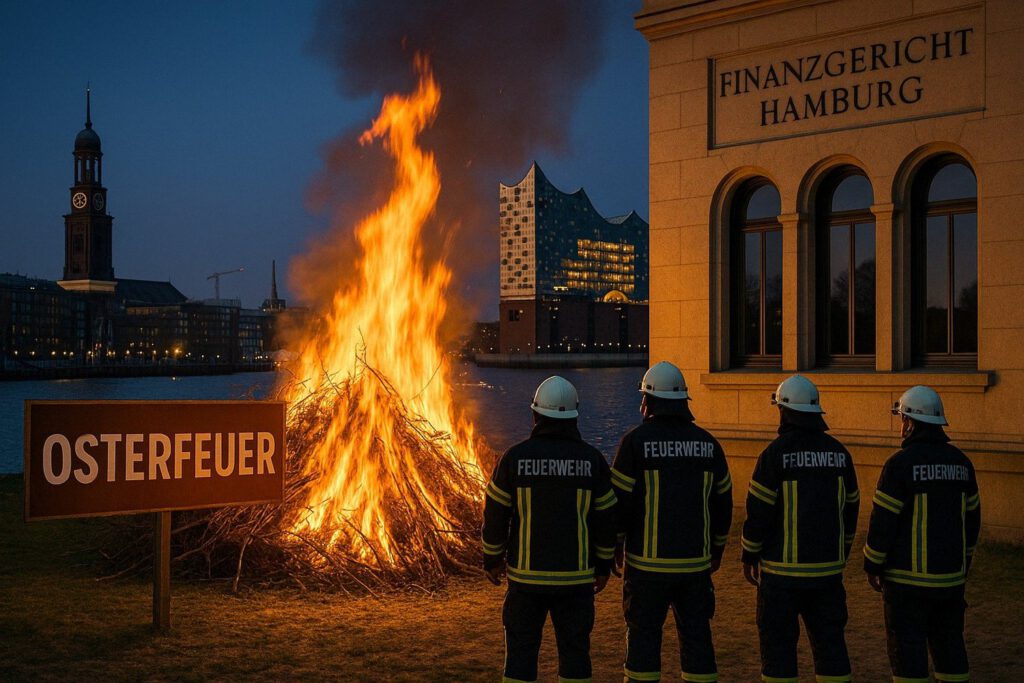A Holiday Greeting with Legal Background
Shortly before Easter, many communities come to life: volunteer fire departments host traditional Easter bonfires, sell grilled sausages and beverages, and provide both community spirit and safety. But what happens when the tax office suddenly joins the festivities – in the form of a tax assessment?
The Hamburg Fiscal Court, in a noteworthy and legally binding ruling (Judgment of 31 January 2014 – 5 K 122/11, DStRE 2015, 90), established a clear precedent that provides significant relief for volunteer fire departments in Hamburg (and comparable entities).
The Case: Easter Bonfire as a Tax Dispute
Between 2003 and 2007, Volunteer Fire Department A organized a public Easter bonfire annually on Holy Saturday. Food and drinks were sold at the event – organized by uniformed firefighters using official equipment and as part of the regular duty schedule. The proceeds were managed through the so-called “comradeship fund”.
The tax authority interpreted this as a commercial activity and classified the volunteer fire department (specifically the comradeship fund) as a non-incorporated association subject to corporate income tax and trade tax. This led to tax assessments and subsequent legal proceedings before the fiscal court.
The Judgment: No Association, No Tax Liability
The Hamburg Fiscal Court ruled as follows:
- No Taxable Association: According to Hamburg’s fire service legislation and associated regulations, organizing Easter bonfires and selling food fall within the legitimate scope of duties of the volunteer fire department. This does not constitute a private commercial activity but a sovereign, officially sanctioned function.
- Comradeship as a Public Duty: The maintenance of camaraderie is legally enshrined in Hamburg and must include the management of a comradeship fund. This fund constitutes a special public-law asset.
- Official Actions: Members of the volunteer fire department act within this context as part of an official institution – not as a privately organized association.
Conclusion for Practice
For all volunteer fire departments in Hamburg (and similar organizations in other federal states with equivalent legal frameworks), this ruling implies: as long as events like Easter bonfires are carried out within the scope of legal duties, they do not give rise to a tax liability (such as that of an implicitly established non-incorporated association).
Our Advice: Volunteers should ensure proper formal organization – especially with regard to financial management, meeting records, and public representation. This ensures that such engagement remains not only charitable but also legally secure. Legal complications can thus be avoided – even around the Easter bonfire.
If you require legal advice, please feel free to contact your Hamburg-based law firm, BALIN LEGAL.
Disclaimer: This text does not claim to be exhaustive and does not constitute legal advice. Legal advice is provided only on a case-by-case basis after examining the specific circumstances from a legal perspective.
Should you have legal inquiries on this or other topics, please contact Attorney Eugen Balin, LL.M., via email at info@balin-legal.de.

